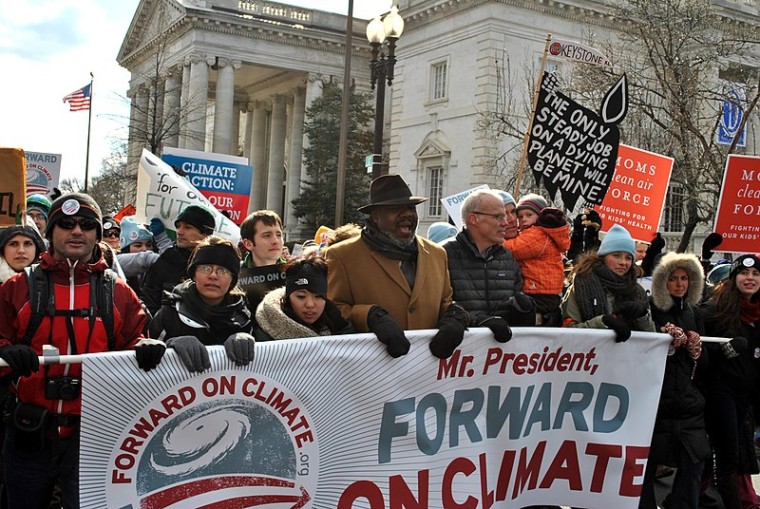January 1, 2022
New Year’s Resolution: Combatting Climate Change
In this inaugural BLC blog post, I would like to launch a conversation with our clients, colleagues, and friends about fighting climate change. We in the law and dispute resolution professions have a wealth of resources available for this task – e.g., education, access, and visibility – and we could be doing far more to counteract this existential threat to humanity. BLC will host a brown-bag lunch on this subject on February 2 at 12:30 – 2:00 p.m. (free), and you are cordially invited.
One tangible step that law firms can take is joining the Law Firm Climate Pledge, which BLC recently signed. The Pledge commits firms to refrain from working for the fossil fuel industry, and – in addition – working affirmatively to support renewable energy development, address climate change, and advance climate justice. This Pledge initiative, along with boycotts by individual and institutional ESG investors, is seeking to create the type of moral and political pressure that stopped the war in Vietnam and hastened the demise of apartheid in South Africa. Law students at Harvard and other campuses have begun picketing recruiters from law firms that serve the fossil fuel industry. I can foresee a time when law students looking for jobs (and clients looking for lawyers) will screen out firms that work for oil, gas, and coal companies. (One such initiative is the “Climate Change Scorecard” that ranks law firms on how their client work impacts the climate.)
Another such initiative is to make it a norm for professional services firms to reduce their collective contribution to greenhouse gas (“GHG”) emissions to a point as close to zero as possible. One study by a consulting firm showed that commuting and business travel comprised more than 75% of the firm’s GHG impact. The Covid-19 crisis has led us at BLC to realize how much work we can do via Zoom without commuting, and I think it’s time to make a virtue of a pandemic-related necessity. For nearly two years, BLC has been conducting virtually all of its work remotely and will consider doing so indefinitely – not just for health reasons but also for the sake of the planet. And now that clients are starting to ask whether we are willing to mediate or negotiate in person, it’s time for us to tell our clients that, even after the Covid crisis abates, we are planning to continue working remotely as much as possible to reduce the GHG impact of our work.
Our physical plant also contributes to GHG emissions. In part because of our commitment to working virtually, BLC has recently reduced its physical footprint considerably by entering into a space-sharing arrangement with MWI at 10 Liberty Square in Boston. And during this year, we will be taking a hard look at other ways that we can reduce our carbon impact – not simply to be good climate citizens but also to motivate other firms by example.
Even creating new norms in our industry, however, is not enough. Skillful advocacy – a major part of our training – must be deployed for greater governmental regulation. Individual virtuous acts will not be enough to stem the GHG tide. Law and dispute resolution firms can lobby our bar associations and other professional organizations, which in turn can influence legislators. In the year ahead, I look forward to BLC’s working with other professional colleagues and firms to use our leverage for tougher laws.
Another important element of these initiatives is accountability and transparency. I look forward to using Zoom brown-bag lunches to share ideas on how to reduce our climate impact and to identify the best programs to support (such as energy storage initiatives and campaigns to ban natural gas in new construction) to mitigate and reverse climate change. And, I plan to post the results of all of these inquiries and initiatives on this blog a year from today.
As a society, we have done a terrible job of managing the untaxed, unregulated externalities of our economic life. It’s easy to ignore those impacts because they are often as invisible to us as the CO2-laden air that we breathe. Taking tangible steps in the right direction (and communicating with professional colleagues about them) can help make these externalities more visible and – by virtue of “social proof” – motivate others to support climate action. To quote Guardian columnist Rebecca Solnit, “we influence others through our visible choices. Ideas spread, values spread, habits spread; we are social animals, and both good and bad behaviors are contagious.” My New Year’s resolution is to make this a year for avoiding one contagion (Covid-19) while contributing – through learning, sharing, and acting – to the rising contagion of opposition to climate change.
P.S. A special shout-out to my kids, who have educated me about the climate crisis and whose ideas profoundly influenced the substance of this blog post. The first version of this post would have focused on measuring BLC’s carbon footprint and buying carbon offsets. My conversations with them have led me to think more about the difficulty of measuring the full scope of such footprints, how little carbon offsets accomplish even if they are widespread, and also the dangers of fostering a mindset in which pollution is permissible if we pay for it. For those of you who have children, I encourage you to consider another New Year’s resolution – namely, talking to them, if they’re old enough, about their concerns and perspectives. You might find, as I did, they have thought longer and harder about these issues than their parents have.

David,
THANK YOU for this. I have been thinking about how I can work on behalf of acknowledging and limiting climate change. This is helpful. I hadn’t seen this when you sent it out – I just came across it today.
I’ve been busy – missed acknowledging your birthday. But I’m interested in whether this thread/work continued?
Carl